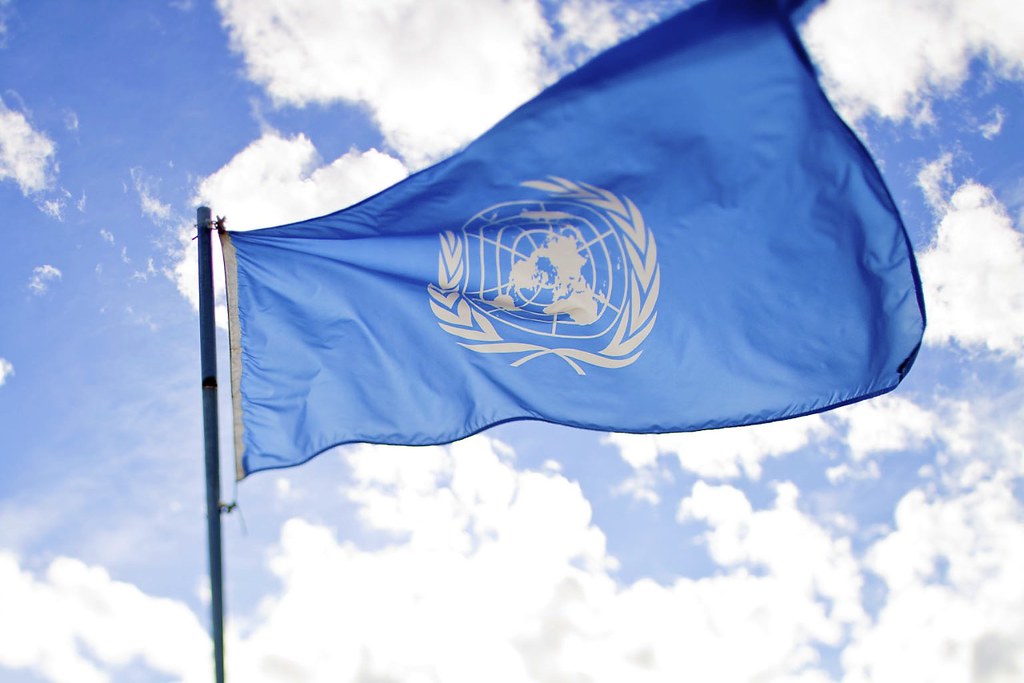UN General Assembly Opens in New York—But Online


by John J. Metzler
Weirs Times Contributing Writer
Presidents, Prime Ministers and Kings are set to attend the opening debate of the UN General Assembly; but online. The 75th anniversary session of the Assembly was planned as a gala gathering of chiefs of state and government but shall now be relegated to a series of virtual sessions. The cavernous General Assembly hall shall resonate not with live speeches, applause, and the stir of anxious delegates, but with prerecorded fifteen minute Webex presentations.
During this annual rite of Autumn in New York, the delegates, the motorcades, the speeches, the hyper security and the traffic jams, has succumbed to the Covid pandemic. How the world has so quickly changed!
The UN celebrates its founding in 1945 when the Allied victors of WWII, Britain, China, France, the Soviet Union and the United States founded the multinational world assembly. At its creation the UN had 51 countries; today there are 193 member states.
Nonetheless despite the pandemic challenges, the United Nations faces daunting missions ranging from enduring conflicts in Syria and Yemen, humanitarian crises from the Congo to Lebanon and Venezuela, and the widening socio-economic disaster caused by the global spread of Covid-19.
UN Secretary General Antonio Guterres told correspondents “The COVID-19 pandemic is a crisis unlike any in our lifetimes, and so this year’s General Assembly session will be unlike any other, too.” He added, “the stakes could not be higher. Our world is nearing the grimmest of milestones: 1 million lives lost to the virus. Meanwhile, the outbreak remains out of control.”
The general debate session leads off by tradition with Brazil as the first speaker followed by the United States. President Donald Trump was slated to attend, but previous plans for the president to make a live address would have been awkward given the largely empty Assembly hall.
Following the USA, the diplomatic speakers lineup includes the Presidents of Turkey, China, Russia, South Korea, Islamic Iran and France among others. In other words Erdogan, Xi Jinping, Putin and Moon Jae-in. Over five days the UN will host 180 high level speakers. Yet restricting world leaders to a mere fifteen minutes of video may be the real story!
Thus contrary to the norm there will be none of the usual mingling, handshakes and diplomatic bonhomie which characterizes UN sessions. I’ve been covering these events long enough to appreciate that the real diplomacy transpires at receptions, bilateral meetings and impromptu chats.
Secretary General Guterres laments, “We’ll do several virtual meetings with Heads of States… but we will miss that contact, that personal contact, that I believe is very important for diplomacy to be effective.”
Veteran Turkish diplomat Volkan Bozkir has been elected president of the 75th Assembly. In earlier comments he stated, “In less than a year we have seen social and economic damage on a scale not seen since the Second World War.”
Speaking bluntly about a Covid vaccine Secretary General Guterres warned, “Many pin their hopes on a vaccine—but let’s be clear: there is no panacea in a pandemic.”
“But, starting now, a vaccine must be seen as a global public good, because COVID-19 respects no borders. We need a vaccine to be affordable and available to all,” Guterres stressed adding, “For any vaccine to work, people across the globe need to be willing to take it. But, with the spread of the virus, we are also seeing a proliferation of misinformation about a future vaccine. This is fueling vaccine hesitancy and igniting wild conspiracy theories.”
Over the next few months the General Assembly will consider 183 agenda items; one new proposed item is, “The responsibility to protect and the prevention of genocide, war crimes, ethnic cleansing and crimes against humanity.” In a victory for human rights, this agenda item was strongly supported by 101 states but was opposed by 13 including Belarus, China, Cuba and Russia among others.
During past sessions the UN was consumed by the ever elusive Middle East peace process, the spread of so-called Islamic State terrorism and refugee issues. But the U.S. has soundly defeated the Islamic State Caliphate. Recently the Trump Administration sponsored a landmark diplomatic peace deal between Israel and two key Arab Kingdoms, the United Arab Emirates and Bahrain, the first substantive rapprochement between Israel and the Arabs in a quarter century.
One question that likely won’t arise during the debate concerns the debacle over the UN’s World Health Organization in not sounding the Covid virus alarm sooner. Maybe that’s why this is a virtual session after all.
John J. Metzler is a United Nations correspondent covering diplomatic and defense issues. He is the author of Divided Dynamism The Diplomacy of Separated Nations: Germany, Korea, China.



